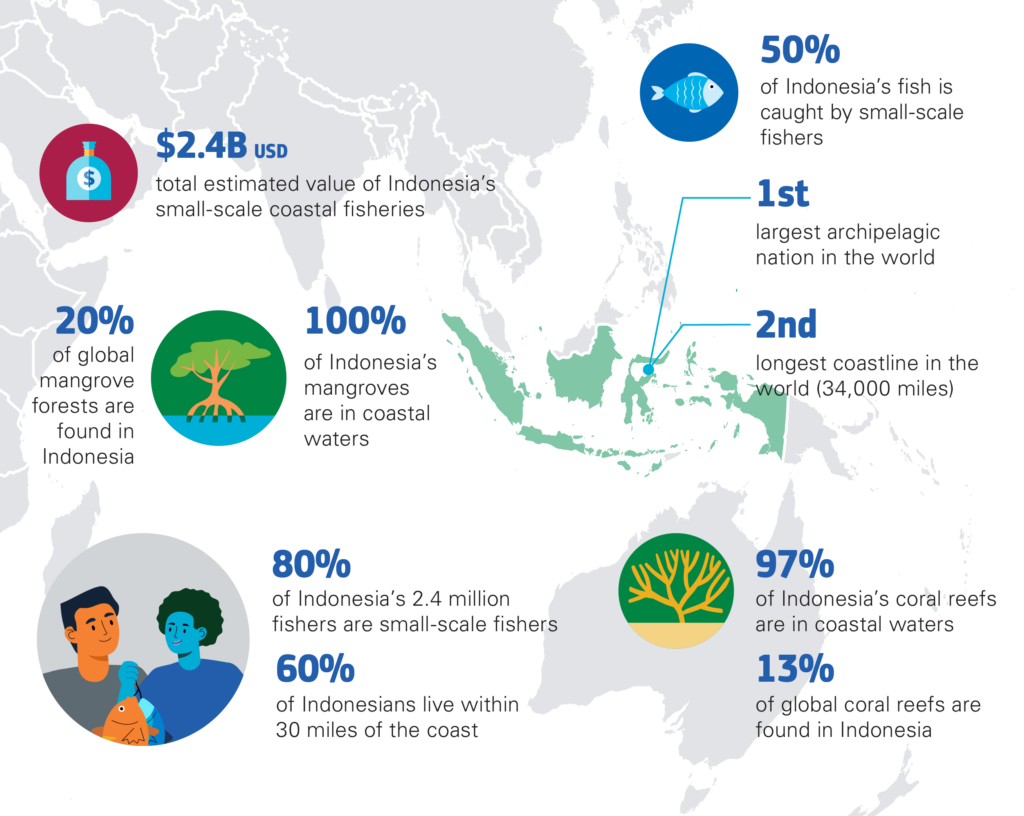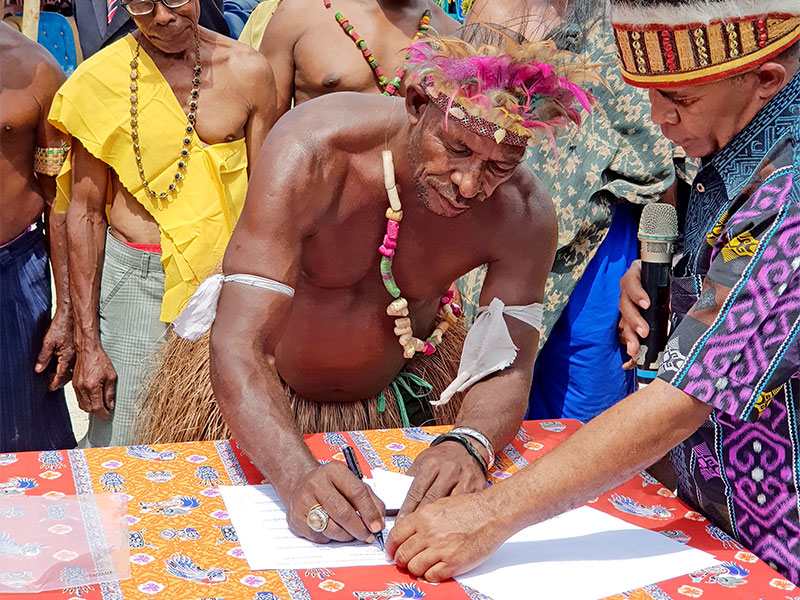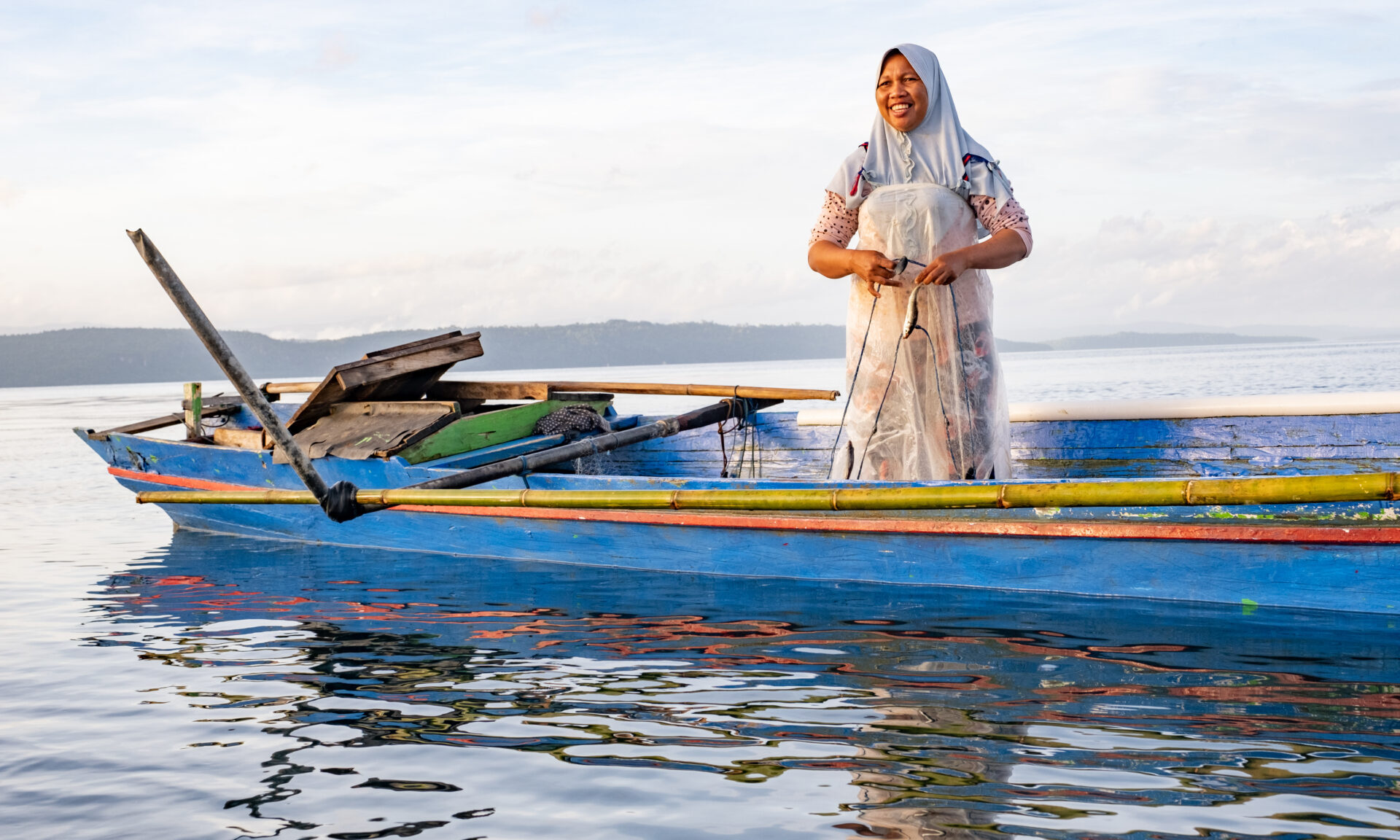Rare in Indonesia
A Changing Tide: A Story of Leadership for our Community Seas
Indonesia is endowed with natural and cultural richness. It’s the world’s largest island country, with the second longest coastline, vast mangrove areas, and second-largest coral reef expanse globally. Its nearly two million coastal fishers and fisheries form a key part of the nation’s cultural heritage and economy, with small-scale fishers relying on nearshore areas for food and income.
Unsustainable fishing practices, lax regulation, poor governance, habitat degradation, and external factors like climate change threaten these coastal fisheries. They destabilize nationwide development and jeopardize Indonesia’s economy, food security, and coastal fishers’ livelihoods.

Unsustainable and poorly-regulated fishing practices, poor enforcement and governance, degradation of essential fish habitat, and external stressors such as climate change severely threaten the coastal fisheries on which Indonesia’s coastal fishing communities depend. Declining fisheries destabilize nationwide development efforts and pose a material threat to Indonesia’s economy, as well as the food security and livelihoods of millions of people. The first to feel the impacts of these depleted resources are coastal fishers and their families and communities.
Stay Connected
Sign me up for occasional emails to learn more about Rare’s work and how I can support its mission. I know I can unsubscribe at any time.
The Fish Forever Solution
About Rare’s Fish Forever Program
Fish Forever is a global program to revitalize the world’s coastal fisheries. Through Fish Forever in Indonesia, Rare supports coastal communities and their local leaders to protect, restore, and manage the coastal waters and habitats on which we all depend.
Stories and Updates
Partners
Fish Forever is a global network of over 100 staff, 150 local partners, 1,700 coastal communities, 160,000 fishers, over 150 mayors and local government leaders, and dedicated donors and partners working together to guarantee the future of our coastal seas. Rare partners in Indonesia include national government Ministries (e.g., Ministry of Marine Affairs and Fisheries), provincial and district governments (e.g., Southeast Sulawesi province), local government departments, fishers and fisher associations, universities, NGOs, and other civil society groups.

Contact Us
- Indonesia
- United States
Indonesia
Jalan Cikuray No. 4,
Taman Kencana, Babakan, Bogor 16128
West Java – Indonesia
Email: indonesia@rare.org
Phone: +62 251 8325418
Global Headquarters
1310 N. Courthouse Road, Suite 110, Arlington, VA, 22201
Email: info@rare.org
Phone: 703.522.5070
